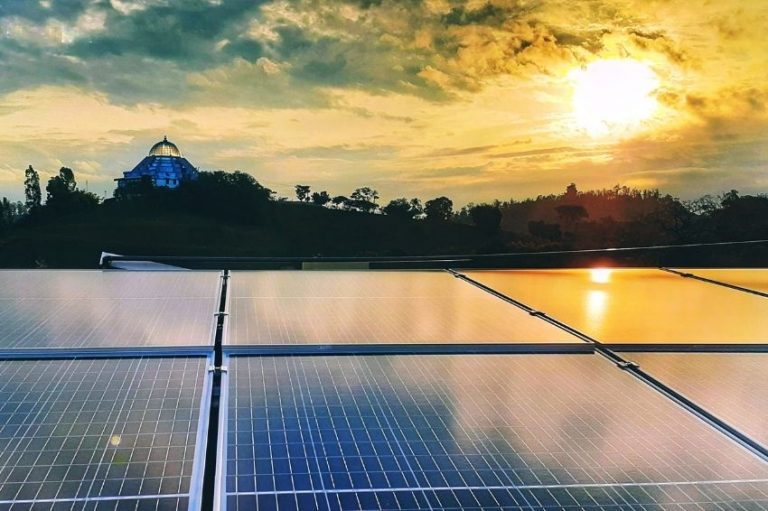In 2021, a record number of new solar projects were registered with ANEEL (National Electric Energy Agency). But new distributed generation legislation, currently awaiting ratification, will see a new rush of solar projects as developers seek to avoid new incremental charges for the use of transmission networks through TUSD (Tariffs for Use of the Distribution System).
The legislation proposes a 10-year transition from the current model, with projects already connected to the grid authorized to operate under existing rules until 2045.
The new legislation will see developers move quickly with projects in an effort to beat higher tariffs so they can offer cheaper power purchase agreements (PPAs) to outside buyers for as long as possible. .
In 2021, installed solar capacity in Brazil reached 12 GW and, before the changes were outlined in September 2020, the portfolio of registered renewable projects under development was 8.7 GW.
That number, however, more than doubled after the law was proposed in March, reaching 18 GW, with solar energy accounting for the majority of new capacity.
Reducing or removing renewable subsidies can often result in the decline of new project applications, as in the UK, with successive reductions – and eventual removal – of the FIT (Feed in Tariff). Brazilian industry is expected to pause and take stock.
However, the solar market will continue to grow strongly, responding to the fundamental drivers driving the adoption of solar energy and the reduction in the cost of photovoltaic panels.
We expect to see more investment in solar farms and greater uptake in the residential market as consumers look to manage their rising home energy costs.
In the long term, the new law also improves the financial environment, which will encourage foreign investment in renewable energy projects, opening up access to a wider range of financing options.
ESG: increasingly important
In April 2021, at a climate summit sponsored by the United States, Brazil committed to achieving zero carbon emissions by 2050 (a commitment reinforced in November, during the 26th United Nations Conference on Climate Change), a 10-year forecast earlier than previously planned.
While there is much well-founded skepticism regarding President Jair Bolsonaro's environmental and climate promises, it is worth noting that leaders of 30 of the country's top companies hinted at this pledge in an open letter to the country's president.
Brazilian companies are increasingly concerned about the environment and broader issues of reputation, as environmental, social and governance issues, ESG, have become constant elements on the agendas of the board of directors of these businesses.
Evidently, ESG is intrinsically linked to finance, and Brazil is no different from any other country in this aspect. The evidence is there to prove it. Of the money invested in BlackRock Brazil During the first quarter of 2021, more than a third was allocated to ESG exchange-traded funds.
Continued pressure from indigenous people and international companies is slowly but surely forcing Brazil's government to act on climate. This change in approach will help remove an important barrier to international investment in Brazil's green infrastructure.
Agriculture: a technological revolution
Agriculture is responsible for around 1 in 10 of jobs in Brazil and adds more than 4% to the country's GDP. Brazil is the world's largest producer of many essential commodities, including sugar, coffee and orange juice.
There's a revolution happening in the world of agriculture and it involves the use of technology – or 'agritech' – to improve crop yields, reduce the use of harmful chemicals and protect soil.
The technology is being applied in many ways. For example, the use of cameras and drones that can identify and remove weeds without the need for mass spraying of chemicals. Or even planting seeds from air pods.
Satellite data analysis can help inform exactly where – within a few meters – crops have benefited from fertilizer application and in what quantity. More accurate weather forecasting using local weather stations allows growers to plan planting, protection and harvesting to maximize production.
According to a 2020 survey by McKinsey & Company, a global strategic consulting firm, the reach of digital agriculture in Brazil is greater than in the United States – and growing.
Brazilian farmers are embracing technology to help them grow and process food more profitably and sustainably. Solar panels are natural allies of technology in the sustainable agricultural revolution.
Solar farms can provide much-needed power to remote and off-grid areas, allowing processing plant, irrigation and agricultural equipment to benefit from clean electricity at predictable prices. Agriculture is expected to be one of the main drivers of off-grid solar energy in 2022.
Some producers are already realizing the benefits of combining solar energy and food crops on the same land. This approach maximizes the use of the area and allows the use of photovoltaic solar energy to improve growing conditions.
For example, in hot regions, solar panels can be used to provide crop shade during the hottest part of the day, helping to prevent water evaporation and reducing the need for irrigation. Mounted on the ground, solar panels are also compatible with smaller free range animals such as chickens and sheep.
New generation
Historically, the abundance of hydroelectric energy in Brazil ensured that its energy matrix was low carbon. However, there are increasing problems with aging infrastructure and in recent years generation has been irregular due to the effect of drought on river levels.
The demise of hydropower is fueling the growth of solar power and other more sustainable forms of renewable energy. In fact, over the last decade, Brazil's wind energy production has grown 20-fold and now supplies 11% of the country's electricity, with 20 GW of installed capacity.
In addition to reaching high levels of insolation that benefit solar generation, Brazil is also very windy. During 2020, the wind capacity factor was over 40% compared to a global average of 35%. And with 7,400 km of Atlantic coastline, we see a significant opportunity for the offshore wind sector in Brazil.
Along with solar, wind energy has a promising future in Brazil and we expect to see strong and continued growth throughout 2022, with new opportunities emerging for floating offshore wind technology.
Hydrogen: the opportunity
With an abundance of renewable energy, Brazil is well positioned to profit from the hydrogen economy. During 2021, Ceará announced plans to build a 600,000-ton-per-year green hydrogen plant, which would make it the largest in the world. In addition to helping to decarbonize the Brazilian industrial economy, the state intends to export the hydrogen it will produce.
Hydrogen can play its role in the energy transition by providing energy storage for microgrids, i.e. hybrid energy systems comprising renewable generation and storage, which provide 24/7 access to electricity.
Microgrids are self-sufficient local energy networks that can serve the community of a neighborhood, campus or business, and can operate parallel to the existing energy grid or completely independently.
Batteries currently provide the most direct way to store energy, but hydrogen is also becoming more viable as the price of specialized equipment falls.
We expect to see more substantial Brazilian hydrogen infrastructure projects announced in 2022, with a wider range of applications.
Growing the green economy
Despite the government's poor environmental record, Brazil remains well positioned to benefit from investment in its green economy throughout 2022.
The most recent legislative proposals will bring legal certainty to both contracts and consumers, who will have their rights guaranteed and respected.
And, in a move designed to encourage domestic investment, the government also canceled import duties on solar equipment manufactured abroad.
If the country wants to sustain a strong economy, a reliable energy infrastructure is essential. New policies that support green investment also provide businesses with reliable low-carbon energy, boost the broader economy, and create clean energy jobs.
Foreign investors will continue to support Brazil's green renaissance during 2022. Taking urgent and credible action to halt deforestation and environmental destruction could open doors to foreign investment.
















One Response
I have a solar energy company